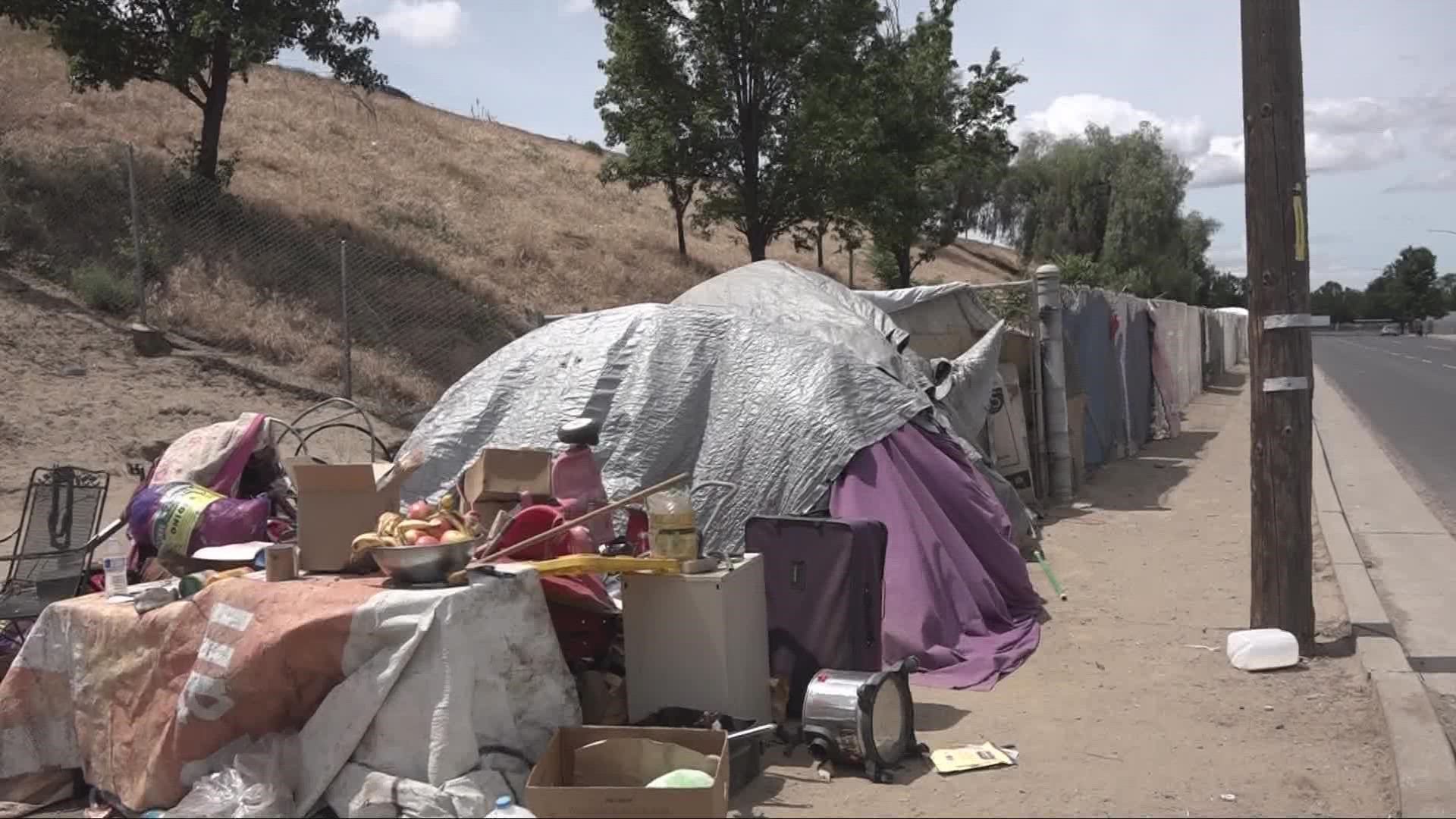STOCKTON, Calif. — A recent federal ruling on encampments in Berkeley could mean more enforcement power for Caltrans clearing encampments of unhoused people living on California highway property
In a case regarding whether encampments could be cleared from passages known as "right-of-ways" without offering alternative housing, the U.S. 9th Circuit Court of Appeals ruled in favor of Caltrans.
The court ruled last week a homeless encampment near Berkeley can be cleared by Caltrans without having to provide for alternate housing. It could apply to Caltrans right-of-way property throughout California.
The California Department of Transportation described encampments of unhoused people living along roadways and highways as safety issues.
Gov. Gavin Newsom also issued a statement on Friday siding with Caltrans, saying that such encampments are also dangerous for unhoused residents living in them.
"The court made it abundantly clear that Caltrans can proceed with its important work revitalizing California’s streets and roadways by clearing unsafe encampments which are hazardous to both the general public and those living unsheltered throughout our state," Newsom said, in part.
Caltrans also issued a statement saying, "We’re grateful for the Ninth Circuit Court of Appeals ruling that allows Caltrans to maintain the state’s transportation network. This allows Caltrans to make sure people experiencing homelessness are not in unsafe and unhealthy encampments on the state right of way. Caltrans will continue to partner with social service providers, including the City of Berkeley and Alameda County, who can connect people experiencing homeless with shelter options and services."
Already struggling for stability, Zillia Miller said she and her two dogs move around from place to place as a result of the right-of-way clearings of encampments. She comes home every day to her tent along a busy highway in Downtown Stockton.
"It's expensive to live out here. I get $1,100, and it all goes," Miller told ABC10.
Longtime homeless advocates like Bob Erlenbusch, executive director of the Sacramento Regional Coalition to End Homelessness, said the question is 'Where are people going to go?'"
"Obviously, the court said this is unsafe, etc. But, in general, it's unsafe to be outside anyway," he said.
Erlenbusch would have preferred the court made Caltrans have an alternative housing plan in place before encampments are removed.
He said, with permanent housing taking several years to complete, something is needed in the meantime.
"You need safe parking programs. You need tiny homes. You need every configuration of short-term housing," Erlenbusch said.
Sacramento Mayor Darrell Steinberg recently proposed a 'Right to Housing' ordinance that similarly would offer unhoused residents housing options before clearing encampments.



















